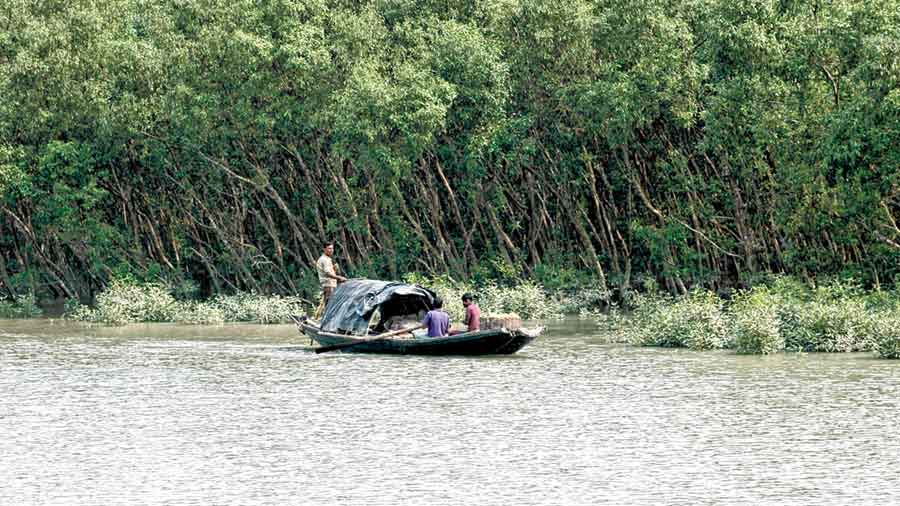At least 30 villagers have been killed by tigers in the Sunderbans in the past 15 months, according to the state forest department.
Most of the victims were attacked while trying to catch crab or fish in the creeks inside the Jhila forest area in the Sunderban Tiger Reserve (STR).
The last casualty, on October 4, prompted the forest department to impose an indefinite ban on fishing inside the Jhila forest area. The ban is all-encompassing — even in buffer areas and even for boat licence certificate (BLC) holders.
No loss of life in tiger attacks has been reported since the ban, said forest officials.
“Around four deaths were reported in the Jhila area in barely 10 days in the run-up to the Pujas. People without BLC ventured into the forest in many cases. But since the area saw an increase in tiger activity, we imposed an overall ban,” said Tapas Das, field director, STR.
Jhila forest area, is around 50km from Canning and 125km from Kolkata and comprises multiple compartments. It is surrounded by islands like Kumirmari, Kalidaspur and Hetalbari and crisscrossed Harinbhanga and Raimangal rivers, bordering Bangladesh.
The forest officials, with the help of local joint forest management committees, carried out public announcements across the villages in the fringe areas of STR, to make people aware of the ban.
Three floating forest camps on boats have been deployed for patrolling the waters to deter any boat that flouts the ban.
But residents and activists working to mitigate man-animal conflict in the mangrove delta said the ban cannot be a long-term solution. The ban, while trying to save lives, jeopardised livelihood, they said.
More and more people in the Sunderbans have turned to the forests for livelihood because the Covid pandemic robbed them of their income. The Covid curbs following a fresh spike in cases only aggravated their crisis. Two cyclones in two successive years, Amphan and Yaas, have led to large-scale inundation of farmlands and waterbodies with saline water, creating further problems for the local population.
“Making a choice between life and livelihood is a near impossible choice. Tens of thousands of migrant labourers had returned to the mangrove delta during the lockdown. The pandemic-induced challenges are acute but it is also unfair to keep straining the forest resources,” said a wildlife activist who requested anonymity.
Mrityunjoy Mondal, member of a joint forest management committee in Kalidaspur, one of the villages on the fringes of Jhila forest, said the ban was being adhered to for now but he was unsure of the future.
“Around 1,200 families live in this village. Three-fourth of them are dependent on the forest. But there are only a dozen BLC holders,” he said.
For now, Mondal and other joint forest management committee members guard the village borders at dawn to prevent people from venturing out into the rivers. “But we don’t know how long they can be held back, if there are no livelihood options,” he said.
